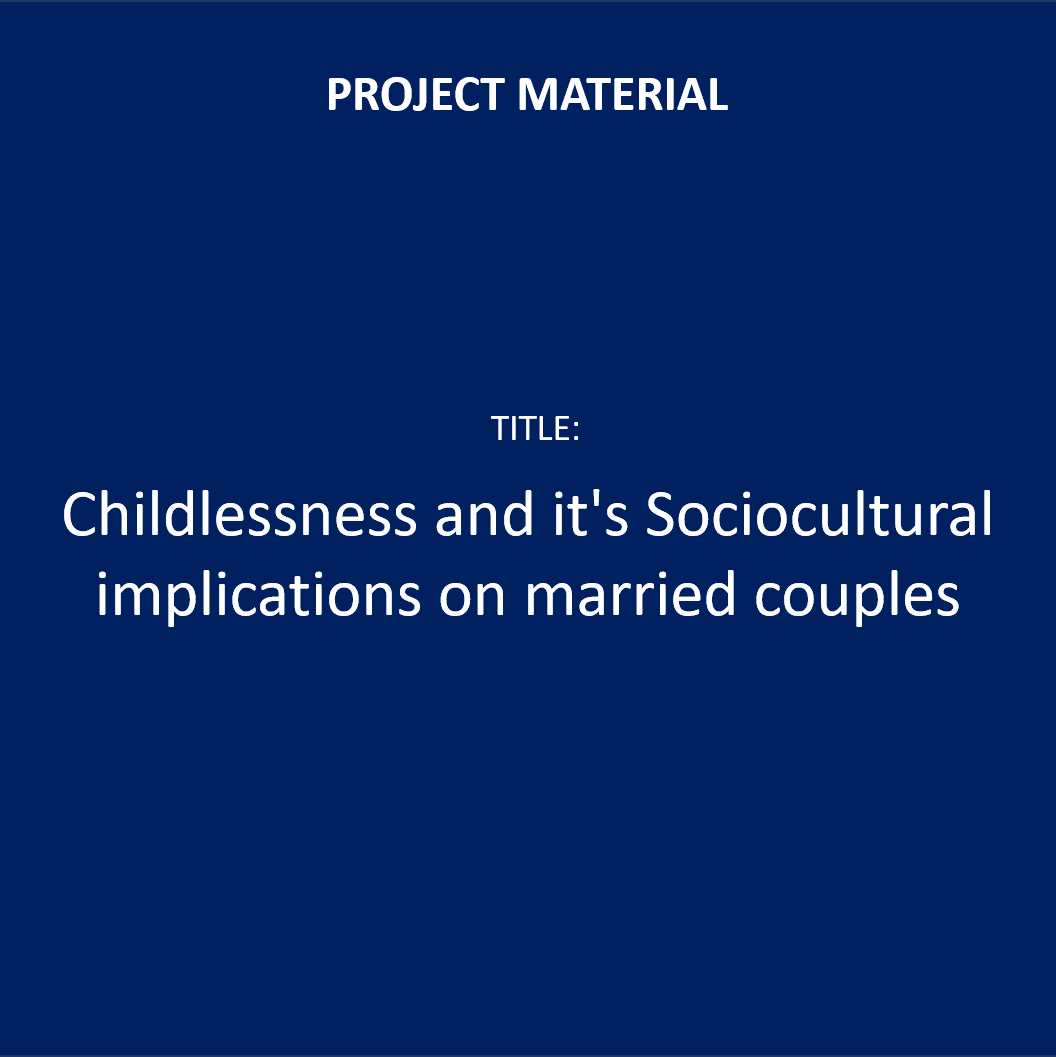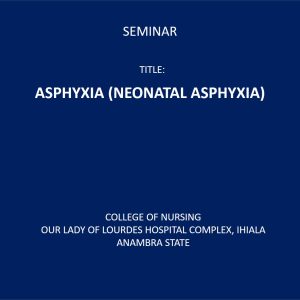No products in the cart.
childlessness and its Socio–cultural Implication on Married Couple Visiting University of Benin Teaching Hospital, Benin Edo state.
₦10,150.00
Project on Childlessness and it’s Sociocultural implications on married couples
Background of the Study
Marriage is a universal phenomenon in Africa and among Nigerians. It is a union between a man and woman that bring together families, communities and ethic group (Ekong, 2017).
The system of marriage varies from people to people and what is considered as the importance of marriage varies, however one general belief is that marriage is aimed at procreation, that is, to say marriage and procreation are inseparable. Approximately 70-80 million couples worldwide are currently infertile (Bos and Boivinet 2017) and it can be estimated that tens of millions couples are primarily infertile or childless.
For most history, childlessness has been regarded as great personal tragedy involving much emotional pain and grief, especially when it results from failure to conceive or from the death of a child (Mail and Charlene, 2017).
According to Ebigbola (2018), Modernization has not weakened the deep-rooted tradition of involving children as soon as possible after marriage, this is because they are needed for so many reason, which are both socio-culture and economic.
Where ignorance prevails, childlessness is usually blamed on the woman. In a study in Benin City, Nigeria by Omega (2018), he reported that childless women are regarded as worthless and deserves to be divorced.
This in itself adds to the high level of negative emotional and social effects of childlessness. Procreation is one of the major functions of the family. Every man takes a wife apparently to have children and where this purpose is not forth coming into fulfillment, it results to tension in most cases which lead to misunderstanding and disputes in the family (Ekong, 2017).
Childlessness has varied consequences through its effects on societies and on the life styles and life chances of individuals. The childless life style enhances life satisfaction for some individuals, while diminishing it for others, for whom parenthood was a personal goal. For societies childlessness is a factor in low birth rates and population decline, with which are associated diminishing labor force entries and rising proportions in order ages. Childlessness is therefore a consideration for policy makers both because of its demographic impact and because of its effects on the lives of individuals. The later becomes more apparent in the older ages, where childlessness means that family resources for support of the disable or frail are less assured (World Health Organization (WHO), 2019).
Before conception was well understood, childlessness was usually blamed on the woman and this in itself added to the high level negative emotions and social effects of childlessness. (Mc-curry, 2018).
- ₦7,250.00




